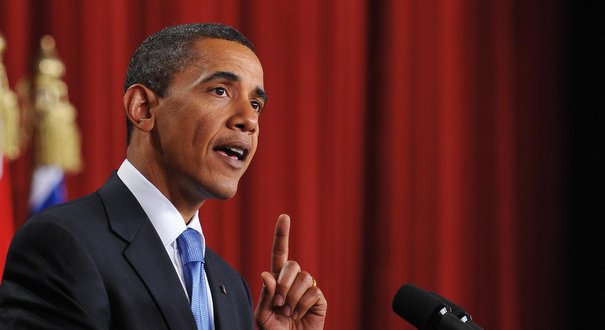The Russian State Duma deputy who tweeted at the beginning of last week that Barack Obama was Bush 43, and David Cameron, his loyal Blair, could not have been more wrong. Even President Putin was surprised by the developments in the British parliament and no doubt by Obama’s decision to seek Congressional authorization for strikes against Syria. The analogy with Iraq ten years ago does not stand. Just the contrary: Syria demonstrates the new limits of U.S. power. Hence the caution displayed by President Obama.
Many of these limits are of U.S. domestic origin. Three quarters of Americans do not buy Obama’s case for military action against Damascus. Virtually no one supports putting U.S. boots on the ground in Syria. All are concerned that a prolonged military campaign in the Middle East would prove to be too costly in financial terms. And there are serious doubts among the U.S. public that the White House knows what it wants to achieve in Syria, or the Middle East more broadly.
Other limitations are external. For all the talk of George W. Bush’s unilateralism, the invasion of Iraq was a joint U.S.-UK endeavor, and the subsequent occupation was exercised by scores of countries, even if in most cases that was token participation. Thursday night’s decision by the UK parliament, no doubt guided by the British experience of Iraq, destroyed the tandem that has been, politically and psychologically, crucial for all U.S. military actions since the end of the Cold War.
Of course, there is France, the United States’ “oldest ally”—originally against the British, of course—but whereas the French political system is de facto more monarchical than Britain’s, nearly two-thirds of the French public oppose waging war on Damascus. There is also Turkey, which is prepared to go all the way toward regime change in the neighboring country it once ruled, but this is about it. With Germany staying out on principle and Italy unconvinced, NATO cannot be activated. This is markedly different from the 2011 Libya situation.
Finally, the international legality of the threatened military action matters to Obama perhaps more than it ever mattered to his predecessor. At the UN Security Council, Russia, supported by China, adamantly opposes outside intervention. The UN secretariat makes a strong argument in favor of waiting for the UN chemical weapons inspectors report, and holding off on any action until then. For the White House, going to war outside of the UNSC framework is entirely possible, of course, but it would certainly add to its already considerable liabilities.
As a result, Barack Obama, a Nobel Peace Prize winner—let’s not forget—has hit the pause button in the countdown to the attack on Syria. The U.S. strike is still likely, and, as Obama made it clear, it does not depend on the U.S. Congressional vote or the UN Security Council’s P-5 unanimity. The pause, however, creates a small opening. This week, the G20 leaders come to St. Petersburg, Russia, for their annual gathering. The crisis in Syria will dominate the economic summit. This may be the last, weak chance for jaw-jaw before there is war-war.
